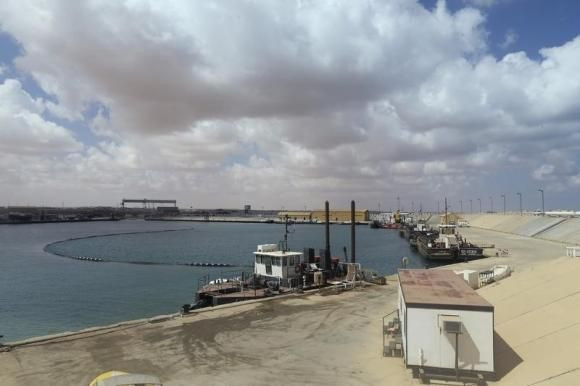Oil Prices Fall As Libya Regains Control Of 2 Major Export Terminals, Ending Yearlong Rebel Occupation

Libya’s last two oil export terminals freed from rebel occupation could start shipping crude again within a week, officials said.
Rebel leaders agreed to hand over the Es Sider and Ras Lanuf export terminals on Wednesday after reaching a deal with the government. The exchange puts to rest a yearlong oil export blockade that crippled Libya’s petroleum industry and reduced exports to just 320,000 barrels a day.
Libya’s National Oil Co. said it may formally lift a ban on exports from its eastern oil terminals as early as Thursday, the Wall Street Journal reported. The restarting of the two facilities, which have a combined capacity of 560,000 barrels a day, would quintuple the country’s current crude export capacity.
"I officially declare this is the end of the oil crisis," said Libya’s acting prime minister, Abdullah al-Thinni, according to Reuters.
The prospect of higher Libyan output sent global oil prices falling on Wednesday. The U.S. benchmark West Texas Intermediate for August declined by 86 cents, or 0.8 percent, to close at $104.91 a barrel on the New York Mercantile exchange. London’s Brent North Sea crude index for delivery in August fell by $1.05, or 0.9 percent, to $111.24 a barrel, its lowest price since June 11, Agence France-Presse reported.
Libya's exports totaled 1.5 million barrels in 2010 but began to plummet three years ago amid the widespread civil war that culminated in Muammar Gadhafi's ouster and subsequent killing. In July 2013, the rebels seized the Es Sider and Ras Lanuf facilities as part of a broader campaign to establish self-rule in the eastern region of Libya. The self-declared Executive Order of Barqa initially demanded an oil-revenue-sharing agreement to make up for the area’s neglect under Gadhafi's 42-year regime, Bloomberg News reported.
The Libyan government has agreed to grant amnesty “in the next few days” to pay the salaries of the Petroleum Facilities Guard members who defected to the Barqa group during the yearlong blockade, a rebel spokesman told Bloomberg.
© Copyright IBTimes 2025. All rights reserved.





















